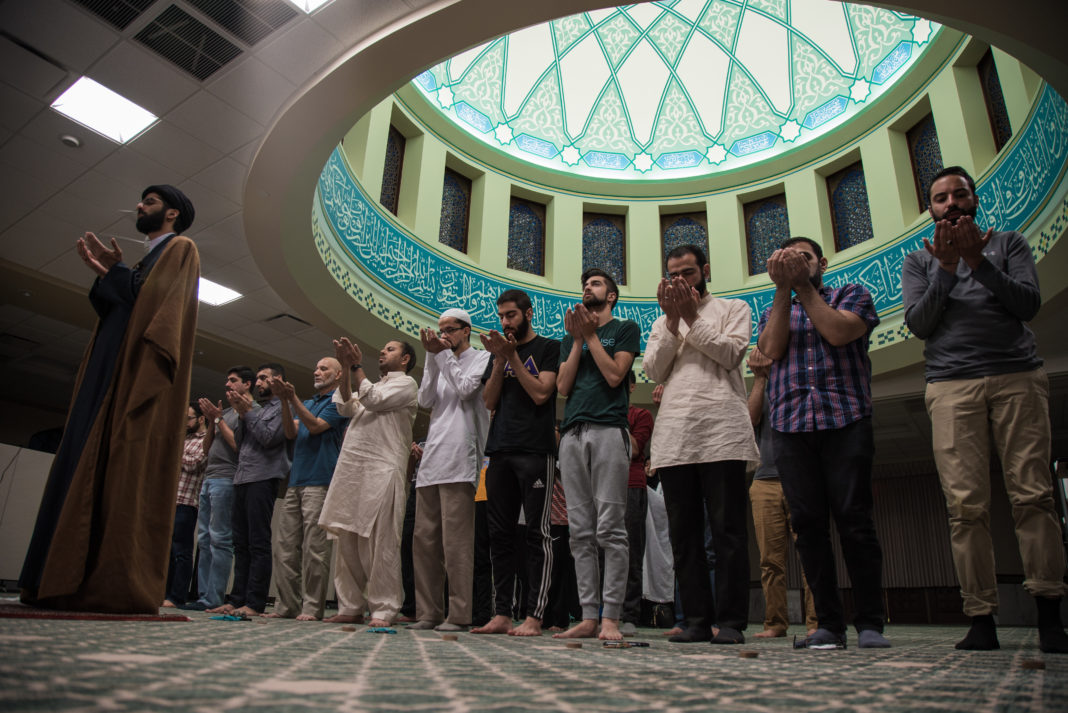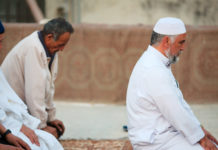One of the central questions in my mind when I attended the 2016 L.I.F.E. program at the Ahl al-Bayt Seminary was, “How can I ensure my worship is accepted?” Prior to attending, I had read the section at the end of Shahid Mutahhari’s book, Divine Justice, entitled, “The Deeds of Non-Muslims.” Interestingly enough, this book was translated from Persian by one of the Ahl al-Bayt Seminary founders, Sayyid Sulayman Hasan, along with two other scholars. At this point in my studies, the argument of Mutahhari is the most cogent theological treatise I have read describing the conditions for the acceptability of our actions in the next world. But logic and scriptural proofs alone do not address our needs—the heart (qalb) too has needs that the mind (ʿaql) is not designed to fulfill.
The teachers at the L.I.F.E. program presented a balanced perspective that integrated the needs of both the mind and the heart. Our class on Contemporary Theology by Shaykh Mahdi Mohammadpour was by far the most rigorous exploration I have experienced of a traditional Muslim scholar seriously grappling with the the epistemological challenges of contemporary religious pluralism. Alongside such highly engaging intellectual classes were deeply fulfilling spiritual classes as well. In 4 sessions regarding good character (akhlāq), Shaykh Ammar Haider gave us so much practical wisdom to improve our selves that it will take many years to implement all the lessons we learned! May Allah help us to do so. Āmīn.
But throughout the first half of the program, I kept returning to my initial concern, and yearning for something to explicitly address it. How might I know that the prayers I am making every day are acceptable to God? It was in this moment that we had a special session on duʿāʾ led by Shaykh Hamza Sodagar. He gave us an explanation of a portion of a duʿāʾ recommended to recite after ṣalāt al-ʿaṣr, attributed to Imam al-Sadiq (upon him be peace):
اَللَّهُمَّ إِنِّي أعُوذُ بِكَ مِنْ نَفْسٍ لاَ تَشْبَعُ
وَمِنْ قَلْبٍ لاَ يَخْشَعُ
وَمِنْ عِلْمٍ لاَ يَنْفَعُ
وَمِنْ صَلاَةٍ لاَ تُرْفَعُ
وَمِنْ دُعَاءٍ لاَ يُسْمَعُ
O Allah, I seek Your protection against a Self that never has enough,
A heart that does not feel apprehension,
Knowledge that does not avail,
A prayer that is not accepted,
And a supplication that is not heard.[1]
He explained how this comprehensive prayer for protection addresses our whole selves (body, heart, and mind), and how the need for our prayers (both ṣalāt and duʿāʾ) to be accepted is representative of our deepest spiritual needs. For our purpose in life is to worship and serve our Creator, and so we deepen our worship and service by seeking refuge in our Creator from the imperfections of our worship and service. We are always in need, and only the One can truly fulfill our needs, both material and spiritual.
Saying this prayer has brought solace to my heart every day. It is as if Imam al-Sadiq knew of my spiritual need before I was even born, and in that moment at L.I.F.E., according to the plan of God, Shaykh Hamza became the conduit for me to experience the spiritual guidance of the Ahl al-Bayt. As many can attest, the duʿāʾs of the Prophet and his family, blessings and peace be upon all of them, often help us express ourselves to God better than we can with our own words. Yes, I had asked my Lord to accept my worship before learning this particular duʿāʾ, but never so beautifully, concisely, and comprehensively. And throughout L.I.F.E. 2016, we were taught about the spiritual treasures waiting for those who turn to the Ahl al-Bayt for guidance: Duʿāʾ Kumayl, Duʿāʾ Abū Ḥamzah al-Thumālī, “The Letter of Imam Hasan al-ʿAskarī (upon him be peace) to ʿAlī ibn Bābawayh al-Qummī”, and many more.
These are the moments we cherish, when our deepest needs are met in a palpable way. I still wonder about the acceptability of my worship from time to time—perhaps it is a lifelong manifestation of living between fear and hope—but this prayer of the Ahl al-Bayt has become my daily companion on the journey to experience the ultimate answer. Every day after ṣalāt al-ʿaṣr, it reminds me to turn back to the One to whom I have already prayed, and dive deeper into the oceans of hope.
Our hope is in the Most Merciful of those who show mercy (Arḥam al-rāḥimīn), and I thank the instructors of L.I.F.E. 2016 for deepening that hope in so many ways.
[1] Available on http://www.duas.org.




